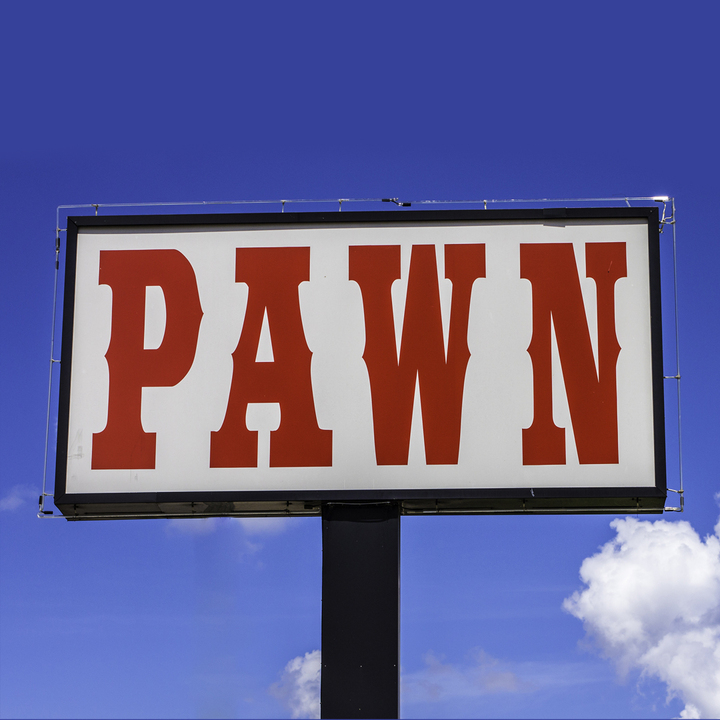The National Pawnbrokers Association estimates that 3 million Americans take advantage of pawn shops each year, with a revenue of almost $15 billion annually. Starting your own shop of this type can bolster your community, provide a needed service, and allow you to cash in on your passion for antiques and finding hidden gems. But once you find an inventory and make connections with the appraisers you will work with, you need to be aware that there are rules and regulations that all pawn shops must follow.

As a pawn broker, you will be regulated by the state in which your shop is located. As a result, you will be expected to obtain relevant permits, business licenses, insurance policies, and adhere to other requirements that vary according to geographic location.
Although these change from state to state, some generalizations apply to all. You will probably need to get a sales tax permit from your state. In addition, you will need a federal tax identification number from the IRS. If you plan to carry guns, you will also have to procure a federal firearms license from the Bureau of Alcohol, Tobacco, Firearms and Explosives (ATF). Additionally, there are other important federal regulations with which you must comply in full.
1. Truth in Lending Act.
The Truth in Lending Act (TILA) and “Regulation Z” requires that you fully disclose the terms of the lending arrangement to your customer. All aspects must be comprehensively described in words that can be easily understood. On the pawn ticket itself, the law requires that you include the annual percentage rate (APR), amount financed, the total amount due, the total number of payments and the dollar amount the credit will cost the customer.
The U.S. Office of Foreign Assets Control (OFAC) also prohibits you from doing business with anyone on that agency’s Specially Designated Nationals (SDN) list. Prior to completing a transaction, you are required to check and verify that the customer is not on the SDN list. The payment software that you receive from your pawn shop credit card processor generally has the SDN list built into the program.
2. Gramm-Leach-Bliley Act.
This statute is designed to protect the privacy of consumers, including those doing business with your pawn shop. It requires that providers safeguard the privacy of “non-public personally identifiable information” and provide customers with a privacy notice at the time of the first transaction and anytime thereafter when you make changes. If you are sending transaction information to law enforcement, you must also make this fact known to your customer.
3. Fair Credit Reporting Act.
This law restricts consumer reporting organizations from sharing non-public personal information with unaffiliated third parties. The law also requires that customers’ information be cared for and disposed of securely.
4. Federal Trade Commission Safeguards rule.
This sub-component of the GLBA specifies the precautions you need to take with consumers’ nonpublic personal information that you collect during a pawn or purchase transaction. To that end, both you and the third-party service providers with whom you work must establish and document the protocols, procedures and technologies you use to gather, store and transmit these sensitive details. Additionally, you must protect the integrity of any documents containing non-public personal information during the disposal process. Many pawn brokers opt to keep a shredder handy near the checkout counter for this purpose and often also enlist the services of a document disposal company.
5. Federal Trade Commission “Red Flags” rule.
The Equal Credit Opportunity Act and Regulation prohibits discrimination during credit transactions. According to the law, no one can be denied on the basis of gender, age, marital status, ethnicity, national origin, religious preference, or receipt of public assistance.
The laws described above represent only some of the federal mandates that govern pawn shops. As these national as well as state and local requirements tend to change, it is important that you conduct thorough research on their most updated iterations before launching your business. Consulting with your high-risk payment processor regarding this issue can provide you with actionable details since this vendor should be equipped with the most up-to-date resources on the subject.
Becoming the pawn shop of choice in your community furnishes you with an excellent opportunity to provide a wide range of products and to offer important lending services that customers are seeking during these unsettled economic times. When you remain vigilant about following the full range of local, state, and federal requirements that affect this type of business, you can look forward to running a satisfying and potentially lucrative shop for many years to come.



